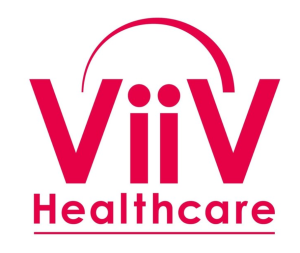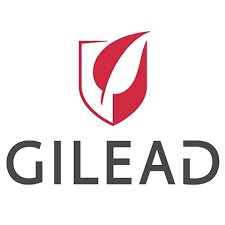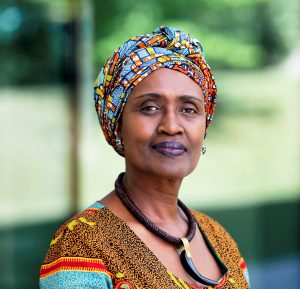
IAPAC Announces Fast-Track Cities Progress on World AIDS Day and Initiative’s 7th Anniversary
- Several Cities Sign PARIS DECLARATION ON FAST-TRACK CITIES
- Fast-Track Cities Report Updated 90-90-90 Targets Data
- Data Dashboards Launched for Several Fast-Track Cities
- IAPAC Releases HIV Policy Brief on 90-90-90 Best Practices
WASHINGTON, DC (December 1, 2021) – As the world marks the 34th World AIDS Day, the International Association of Providers of AIDS Care (IAPAC) today announced progress across the Fast-Track Cities network on the 7th anniversary since the network’s launch on World AIDS Day 2014. In addition to IAPAC, the network’s three other core partners include the Joint United Nations Programme on HIV/AIDS (UNAIDS), United Nations Human Settlement Programme (UN-Habitat), and the City of Paris.
On and around World AIDS Day 2021, a dozen new cities joined the Fast-Track Cities network, bringing the total to more than 380 cities worldwide whose mayors or provincial governors have signed the Paris Declaration on Fast-Track Cities. The network’s new members include cities such as Harare (Zimbabwe), Perth (Australia), Pittsburgh (USA), and Luxembourg (Luxembourg). In total, 64 existing Fast-Track Cities also reported updated 90-90-90 data on World AIDS Day 2021 regarding the percentage of people living with HIV (PLHIV) who know their status (1st 90 target), percentage of PLHIV who know their HIV status and are on antiretroviral therapy (ART; 2nd 90 target), and percentage of PLHIV on ART who achieve viral suppression, meaning the virus is undetectable and therefore cannot be sexually transmitted (3rd 90 target). Of the 64 cities, 19 reported 90-90-90 data for the first time since joining the network. Of the 47 cities that had previously reported data, 45 cited improvements in one or more of the 90 targets since the year in which they reported baseline data. Moreover, Blantyre (Malawi), Florence (Italy), and Nairobi City-County (Kenya) reported they had surpassed the targets (90-92-90, 95-97-97, and 93-99-94, respectively).
“Whether measured by the continued geographic expansion of the Fast-Track Cities network or continued momentum to attain and surpass the 90-90-90 targets, we have witnessed over the past seven years the power of sustained multistakeholder engagement in urban HIV responses that place communities at the center of the progress made in ending their HIV epidemics,” said Dr. José M. Zuniga, President/CEO of IAPAC and its Fast-Track Cities Institute. “We are proud of the agility and resilience shown by more than 380 cities that are committed to acting locally to realize the goal of ending AIDS as a public health threat by 2030, even in the midst of the COVID-19 pandemic.”
IAPAC is assisting Fast-Track Cities to transition their data reporting from the 90-90-90 targets around which the initiative initially focused to more ambitious 95-95-95-95 targets in the new UNAIDS Global AIDS Strategy (2021-2026). These targets translate into 95% of PLHIV knowing their status, 95% percent of those who know their status taking ART, and 95% of those on ART achieving viral suppression. These three updated targets are augmented with a fourth new target of 95% of at-risk individuals using combination HIV prevention, including pre-exposure prophylaxis (PrEP). These data will be visualized on data dashboards on which Fast-Track Cities report their data annually. On World AIDS Day 2021, IAPAC launched three new data dashboards for the cities of Austin/Travis County, TX (USA), Durham/Durham County, NC (USA), and Las Vegas/Clark County/Nevada (USA).
In parallel, IAPAC released “Best Practices for Attaining and Surpassing 90-90-90 from Select Fast-Track Cities,” the first in a series of HIV policy briefs that will document best practices in relation to policies, programs, and strategies that are successfully closing gaps across HIV prevention and treatment continua. The brief released today focuses on five Fast-Track Cities – Bangkok (Thailand), Lagos State (Nigeria), London (UK), San Francisco (USA), and São Paulo (Brazil) – with best practices related to attainment of 90-90-90 targets as well as addressing stigma and improving quality of life for an aging cohort of PLHIV. The policy brief was made possible through support from Gilead Sciences.
# # #
About Fast-Track Cities
Fast-Track Cities is a global partnership between more than 380 cities, the International Association of Providers of AIDS Care (IAPAC), the Joint United Nations Programme on HIV/AIDS (UNAIDS), the United Nations Human Settlements Programme (UN-Habitat), and the City of Paris. The partnership’s aim is to end urban HIV epidemics by getting to zero new HIV infections, zero AIDS-related deaths, and zero HIV-related stigma. Launched on World AIDS Day 2014, the partnership also advances efforts to end tuberculosis (TB) epidemics and eliminate viral hepatitis (HBV and HCV) in urban settings by 2030. For more information about the Fast-Track Cities initiative, please visit: https://www.fast-trackcities.org
About the International Association of Providers of AIDS Care
Representing 30,000 members, IAPAC is the largest association of clinicians and allied health professionals working to end the epidemics of HIV and tuberculosis, as well as eliminate HBV and HCV, by 2030. IAPAC is also a core technical partner to the Fast-Track Cities network and the Secretariat for its Fast-Track Cities Institute. For more information about IAPAC, please visit: https://www.iapac.org/
About the Fast-Track Cities Institute
The Fast-Track Institute was created to support cities and municipalities worldwide in their efforts to achieve Sustainable Development Goal (SDG) 3.3 (ending the epidemics of HIV and TB), the World Health Organization goal of eliminating HBV and HCV, and SDG 11 (making cities and municipalities inclusive, safe, resilient, and sustainable). For information about the Fast-Track Cities Institute, please visit: https://www.ftcinstitute.org/




 “Since the start of the HIV epidemic, cities have been at the forefront, taking a leading role in national agendas and delivering for people most affected by HIV,” said Winnie Byanyima, Executive Director of UNAIDS. “We strongly encourage cities to continue their bold political leadership and coordination, strategic partnerships that engage people most affected by the disease, innovation to address gaps in medical and social services, and to accelerate responses that reflect local needs and respect human rights.”
“Since the start of the HIV epidemic, cities have been at the forefront, taking a leading role in national agendas and delivering for people most affected by HIV,” said Winnie Byanyima, Executive Director of UNAIDS. “We strongly encourage cities to continue their bold political leadership and coordination, strategic partnerships that engage people most affected by the disease, innovation to address gaps in medical and social services, and to accelerate responses that reflect local needs and respect human rights.”





